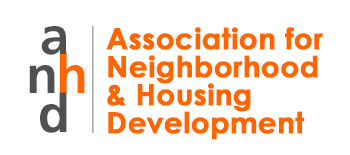What Would the Trump Tax Bill Mean for NYC Affordable Housing?
Although Trump has broken more norms than we thought possible since his election, the tenets of affordable housing development in New York City have remained unscathed and stable for the past year, until now.
The House of Representatives passed their version of the Trump tax plan last week, and now the Senate version has been passed out of committee and appears to be headed for a full vote. If the Senate bill passes, the two versions will go through a process of reconciliation. We don’t know what would be in the final bill, but the amount of destructive policy that may be enacted is so enormous that it’s hard to wrap your mind around it.
One threat in the House version of the legislation that would have a major impact on affordable housing development is the elimination of the federally-authorized Private Activity Bonds, which are essential for cities like New York to build affordable housing. Our colleagues at the New York Housing Conference have estimated this would result in the loss of $2.6 Billion per year for affordable housing financing – including both debt ($1.5 Billion) and Housing Credit Equity ($1.1 Billion), which would take away the financing for 9,700 desperately needed affordable homes each year.
Private Activity Bonds are not widely known by the public, although many people have heard about the Federal Low-Income Housing Tax Credit (LIHTC) financing and understand that it is essential to the creation of new affordable housing. LIHTC is generally popular, and the “LIHTC 9% program” was preserved in the House bill (although the effectiveness of the tool will be greatly diminished if corporate taxes are drastically cut). But, Private Activity Bonds are equally essential to affordable housing since they provide direct deal financing, and they underlie the “LIHTC 4% program”.
The Senate version of the bill preserves Private Activity Bonds, thanks in part to the work of our national colleagues. But, if the Senate bill does pass, the reconciliation process with the House will be chaotic and the final version unclear.
And then, the next big threat comes.
Once the Trump tax reform is passed, Congress will quickly begin work on a new federal budget. Over the past year, the dysfunction in Washington D.C. has meant that Congress has passed Continuing Resolutions that largely extend the final Obama budget. The current Continuing Resolution expires on December 8, 2017, and soon after we may have the first true Trump budget in place.
Some of the ideas that have already been floated include enormous cuts to core city funding programs such as:
- the Community Development Block Grant, which will put major New York City housing preservation programs at risk;
- major cuts to essential New York City Housing Authority funding, which will put tens of thousands of units of irreplaceable and deeply affordable housing at risk;
- new rules designed to punish and destabilize poor people, such as work requirements or time limits for Section 8 and Housing Authority assistance recipients.
These fights will be hard, but cities and jurisdictions like New York that value affordable housing will make our voices heard.
Stay tuned for action updates.
Benjamin Dulchin, ANHD’s Executive Director
 ANHD 2016 Building the Community Development Movement
ANHD 2016 Building the Community Development Movement
